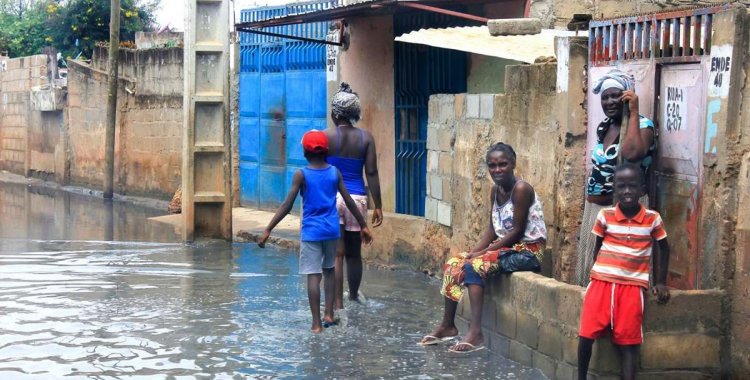In the document, "The Road to COP27 – The example of Africa in the climate debate", released on Tuesday, it is mentioned that among the 10 African countries with the most records of floods, in the period 2010-2022, there is another Portuguese-speaking country. , Mozambique, with 16 episodes.
The 10 African countries with the most flood records are Angola (24), Kenya (22), Nigeria (21), Tanzania (21), Democratic Republic of Congo (20), Niger (19), Uganda (19), Mozambique ( 16), Somalia (16) and South Africa (16).
With regard to drought episodes in the same period, Kenya, with six records, leads the list, followed by Somalia (also with six), Mauritania (five), Ethiopia, Lesotho, Madagascar, Niger, South Africa and Zimbabwe (all with four) and Angola (three).
The report stresses that the impact of natural disasters on Africa is uneven.
South Africa is the only African country affected by five of the six types of extreme weather events analyzed (droughts, floods, landslide events, extreme temperatures, storms and wildfires).
Five African countries – Angola, Kenya, Niger, Somalia, South Africa – which have 13.9 percent of the continent's population, experienced droughts and floods in 2010-2022.
Kenya is the country most affected by droughts next to Somalia (six), as well as the second most affected by floods (22) and Angola is, as the report highlights, the country most affected by floods (24).
The Mo Ibrahim Foundation highlights that climate change exacerbates the internal displacement crisis in Africa, which it considers to have increased steadily since 2016.
"In 2020, 4.3 million people were recently displaced by natural disaster events, representing almost 40 percent of all new internal displacement that year," he notes.
“In nine African countries – Democratic Republic of Congo, Ethiopia, Kenya, Mozambique, Niger, Nigeria, Somalia, South Sudan and Sudan – at least one million people have been internally displaced by natural disasters since 2010,” he adds.
The document also underlines that the 10 most vulnerable countries on a global scale are African, with 20.1 percent of the continent's total population, and among these is Guinea-Bissau.
The 10 countries concerned are: Niger, Somalia, Guinea-Bissau, Chad, Sudan, Liberia, Mali, Democratic Republic of Congo, Eritrea and Uganda.
In the chapter entitled "Avoiding the resource curse", the report draws attention to the fact that, in several cases, "natural resource wealth has had an adverse impact on industrialization and development".
"Many countries rich in oil, gas and minerals have not been able to reach their full potential because of the so-called 'resource curse', with Angola, the Democratic Republic of Congo and Nigeria being frequently cited as examples", he warns.
According to the Mo Ibrahim Foundation, "there is a tendency for resource-dependent countries to become more authoritarian, more conflict-prone and less economically stable than similar resource-less countries."







